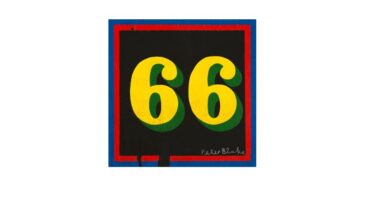This Friday sees the release of the film adaptation of best selling novel and cult favourite ‘Kill Your Friends’. Gigslutz sat down with author John Niven to discuss how he adapted the bestseller, a scabrously dark satire about the music industry in the 90’s, into a feature length film.
Telling the tale of twenty-seven-year-old A&R man Steven Stelfox as he works his way through the boom of Britpop, with the likes of Blur, Oasis and The Prodigy all featuring on the outstanding soundtrack. In a world where ‘no one knows anything’ and where careers are made and broken by the fickle tastes of the public, things take a more sinister turn. As the hits dry up and the industry begins to change, Stelfox takes the concept of “killer tunes” to a murderous new level in a desperate attempt to salvage his career.
In what is set to be a new film favourite, we ask Niven about the casting of Nicholas Hoult, the state of the music industry in the 90’s and how he thinks the films dark humour will play internationally.
Hey John! We weren’t sure what to expect from the film. We loved the book but wasn’t sure how it could be translated to the big screen. I guess we were curious to see if you’d really go there AND you did.
John Niven: (laughs) Why thank you.
In terms of your involvement in the film adaptation – was there ever any idea that you might pass it to another writer?
John Niven: I’ve had four novels adapted but two have been done by other people. Jon Baird who did ‘Filth’ based on the Irvine Welsh novel is doing Straight White Male (Niven’s 2012 novel). I have detachment about my work. You have to have. I work as a jobbing screenwriter and you have to have detachment. If a bad movie gets made from your book it doesn’t dent the book, the book still exists intact so I don’t mind ripping it up a bit.
The most you can hope for is the spirit of the book remains , especially a first person narrative, intact and if you can get that than you might have something.
In terms of the main character, there must have pressure at the beginning to give him some redeemable features. How hard was it to say no, we’re staying faithful?
John Niven: Not hard at all for me. It was harder, although not that hard as they did it, for Will Clarke and Gregor Cameron, who produced the film. They protected the book fantastically. We did hear if he gets his comeuppance we’ll make the movie but I said no, the whole point of the book is nice guys finish last, all the guys I knew who were great, lovely, music fans, they all run tiny labels or work for companies releasing old punk compilations now. The demons, the fucking monsters are the ones who end up at top, that’s the reality of the industry so it would make an utter mockery of the whole thing if he suddenly got caught and punished.
The character of Steven Stelfox is an amalgamation of various people you came across during your time as an A&R. Was there anyone you met in the music industry during that time that you liked?
John Niven: (LAUGHS) I’m still friends with a lot of people who are satirised in the book, we go out to dinner.
What happened when the book was published though? Did you get angry phone-calls/emails?
John Niven: No, the reaction was uniformly brilliant. People were angry if they thought they weren’t an influence on it. The egos are so big the people wanted to be involved. I heard a story about some A&R guy, who shall remain nameless, who had 40 copies in his office which he’d sign and give to bands. I heard that and would think ‘did you read the book?’…’are you crazy?’ (laughs).
The look of the record label offices in the film are corporate, almost lifeless. Was this to done to signify the striking difference between the creative and business side of the industry?
John Niven: That was another great touch of the director Owen Harris. When I first looked at the set I thought this is really sleek but in reality our office were full of copies of Music Week and posters hanging everywhere. This is what a good director does, he wanted the environment to reflect the characters mentality which is a stainless steel knife. He was also strict. In the original script there were a lot more 97′ references but he wanted to just have a couple of little nods at the beginning, using the Blair posters in two different ways to top and tail the film. He was adamant that we were not going to do NOW 97.
Nicholas Hoult was very young when the book came out so when it came to casting the role of Steven Stelfox, when did he become someone you thought could tackle the part?
John Niven: There were a couple of older actors associated with the role which would have been another way to go. If the character had been cast older it may have explained his desperation perhaps more however we were all very young and the reality was I was 25/26 and left the industry at 32 and it was a young environment. The oldest person in the room would have been 38/40 the rest of us were in our 20’s. You’ve either made your millions and fucked off or you were finished. When Nick was first approached for this about three years ago, I thought he was too young as he was about 22 then but of course the process to get the film made takes so long by the time we came to shoot he was nearly 25 so almost the same age as the character. Nick brings that boyish charm and handsomeness but he also has slightly wolfish vulpine aspect to his looks. If we cast a guy that looks like me, the minute he’s on screen the audience would think ‘fuck, this guys going to kill everyone’ but with Nick, he has the charisma to pull off the character, that’s how these guys get away with it.
Mad Max:Fury Road seem to show a different side to him as a performer, that he could play unhinged and slightly frantic but still likeable. I guess, in order to have the audience stay with Steven, you needed those characteristics for the part?
John Niven: The very specific moment in the film that Nick nails brilliantly and is directed brilliantly by Owen is about halfway in where he turns round in the restaurant when Tom Riley’s character, Parker Hall, is asking him do we want to sign this band and he turns to the camera and explains if I sign them and they go down like a ton of bricks I’m finished. On the other hand if I don’t sign them, someone else does and they’re huge then I’m fucking Dick Rowe. For all the terrible things the characters goes on to do in the film, in that moment you get the message that the job is a bit of a nightmare and you’re surrounded by people who want to destroy you.
You’ve also got James Corden in the film. It’s a bit of controversial role what with it being so violent and his current status as America’s Sweetheart (with his huge success as host of The Tonight Show). You’re pretty brutal on him.
John Niven: (Laughs) It was just great timing for us with James. I went out to see him in LA a little while back and he was doing his show and he’s amazing. He sings, he acts, he does interviews, he does standup. There were a lot of knives out for him where people didn’t think it would work but him being in the film has given it a real leg up in the US. But as you say we do make him suffer. I don’t think there is a single scene he’s in where the character isn’t doing coke. He snorted so much glucose powder on set that he said to me ‘I feel sick, I have banging headache’ which was great for the role. I think James is a fantastic actor and he’s almost unrecognisable in the film.
The film has a very British, acerbic tone. Were you worried about how it might translate particularly in America?
John Niven: It’s very interesting the international perspective on the film. It’s black comedy. It’s a very hard thing to hit properly, tonally. Some people look at it and just see black. Some people get the comedy. Now in Berlin at the screening we had there it played like gangbusters, it was a comedy. Berliners are very cynical and they can drink in the cinema so it was riotous laughter. In Toronto where the culture is more PC, we had a full house and it played much more like a thriller. There were gasps of horror.
The screening we saw it in, we had both, constantly.
John Niven: I think here we get both but if you look at a film like Kill Your Friends or, for example, a film like Todd Solondz’s Happiness you can show them to 10 people and may get 3 walkouts, you’ll get 5 people who it played like a very dark drama and you’ll get 2 people who are pissing themselves laughing.
Interview by: Matt Williams (@mattmusic78)
KILL YOUR FRIENDS is released in cinemas nationwide this Friday 6th November 2015.
















